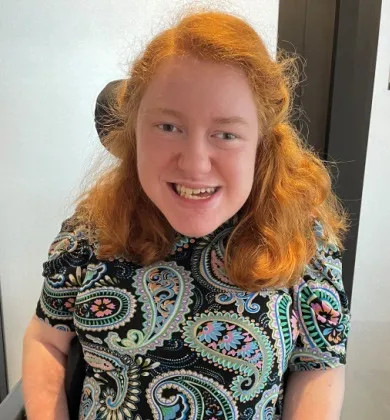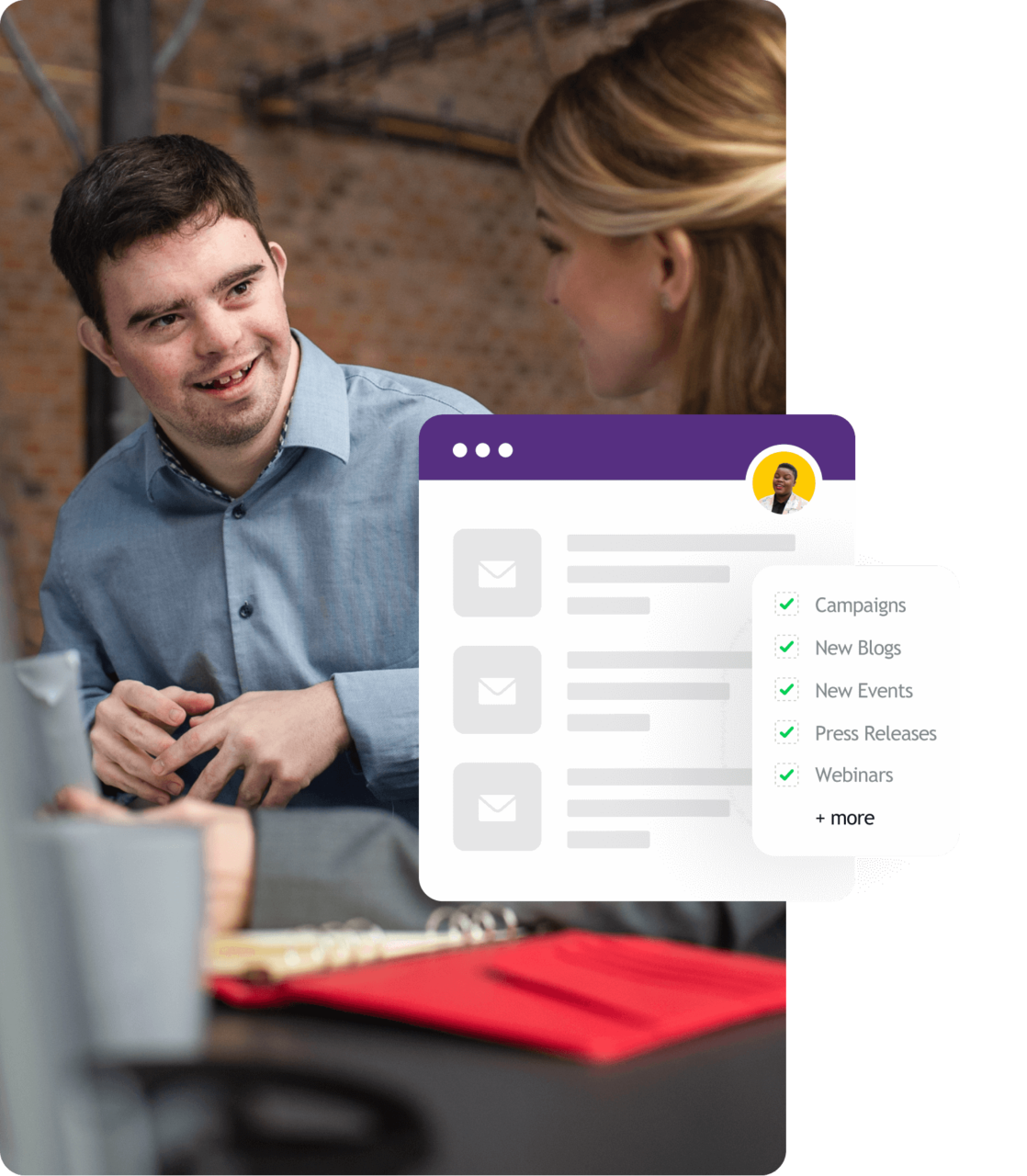The Arc of Northern Virginia was honored to be part of the Assistive Technology (AT) Champions Program, a 6-month journey of shared experiences and community building. This program, in collaboration with the Mid-Atlantic ADA Center and Tech Owl, goes beyond information dissemination. It’s about fostering authentic engagement and empowering young people with disabilities. It’s about learning from each other, activism, disability history, and the wealth of locally available resources. It’s about building connections with other young people with disabilities and addressing the disengagement of assistive technology within the larger disability community. Together, the program develops and implements an outreach strategy to improve authentic engagement with assistive technology by all people with disabilities in Pennsylvania, Delaware, Maryland, Virginia, West Virginia, and the District of Columbia.
 Claire McTiernan, Program Assistant with our Tech for Independent Living Program, served as one of our AT Champions and shared her personal experience as part of the program:
Claire McTiernan, Program Assistant with our Tech for Independent Living Program, served as one of our AT Champions and shared her personal experience as part of the program:
“When most people think of assistive technology, they probably think of a motorized wheelchair or alternative communication device that can cost thousands of dollars,” said McTiernan. “While those are forms of assistive technology, they are far from the only kinds. Assistive technology is anything that allows a person with a disability to do something much more than they could otherwise or will enable them to do something that they couldn’t before. By that definition, smart home appliances are assistive technology for me because I can’t turn my lights on any other way. The computer I’m typing on is assistive technology because although I can write by hand, it’s prolonged and time-consuming. Even something as simple as a straw is an assistive technology because it allows me to drink independently.
“That is why the AT Champions grant and program is so cool,” she continued. “It encourages self-advocates to share their experiences with assistive technology – what works best for them and what doesn’t. Hearing directly from users is much different from hearing from a therapist or doctor because they have hands-on experience with what they discuss. I enjoyed participating in our monthly Zoom meetings and learning about everyone’s projects. I learned about new types of assistive technology – well, new to me anyway – and about state lending libraries and different ways to get funding for what you need.
“Finding a topic for each month’s AT Champion project project wasn’t difficult,” McTiernan concluded, “but creating videos for social media was initially a bit daunting. I’m used to creating written content, but even when I was active on social media, I rarely posted my photos and never videos. Thankfully, the content creation process for social media was much easier than I anticipated. I’m sad that this program only lasts six months; I wish it were year-round! However, since I work at The Arc of Northern Virginia, I hope to be involved with the next cohort of AT Champions and beyond.”
Anna Yanc, another dedicated participant in our AT Champions program, brought her unique perspective and enthusiasm to the initiative:
“For the last six months, I have been learning how Assistive Technology plays a role in our daily lives. Each participant brought something new and exciting to my knowledge of Assistive Technology, whether it involves supporting an individual with a physical difference or a visual one. There are a lot of resources available to our community. I encourage you to reach out to your local Arc chapter to see what they have available to support.”
 Claire McTiernan, Program Assistant with our Tech for Independent Living Program, served as one of our AT Champions and shared her personal experience as part of the program:
Claire McTiernan, Program Assistant with our Tech for Independent Living Program, served as one of our AT Champions and shared her personal experience as part of the program: